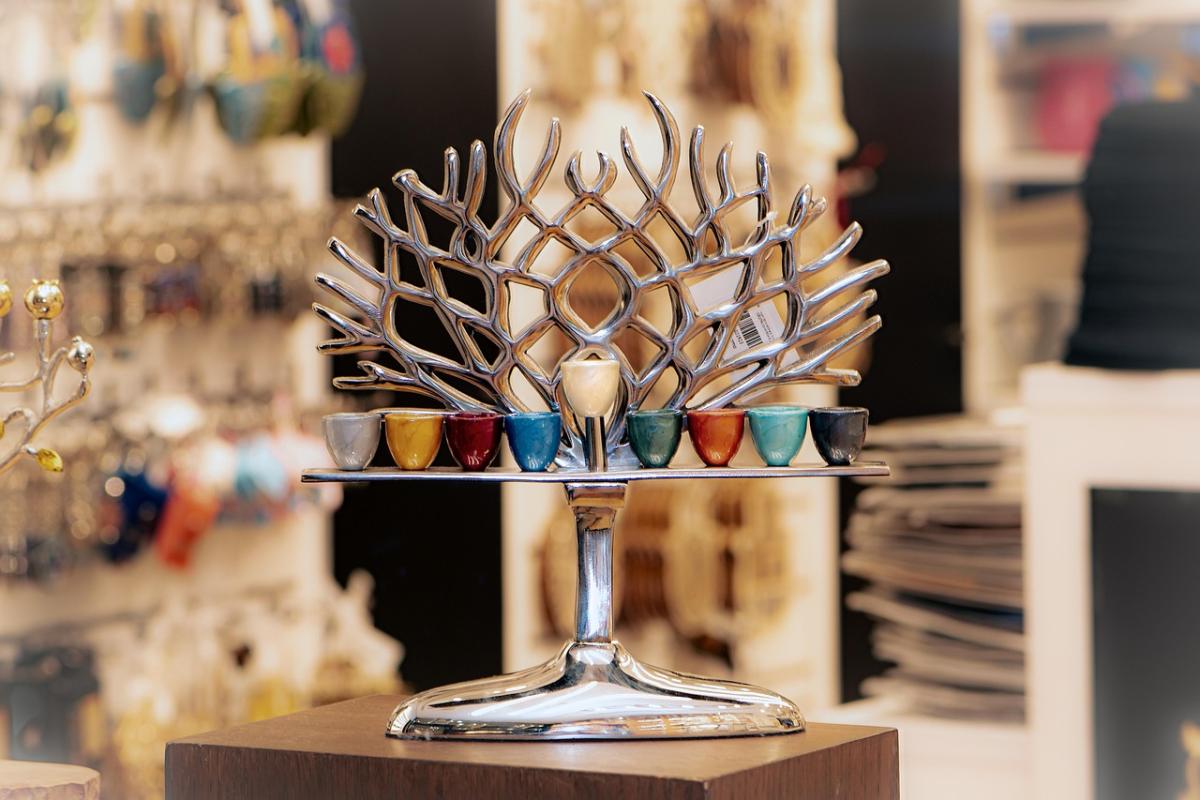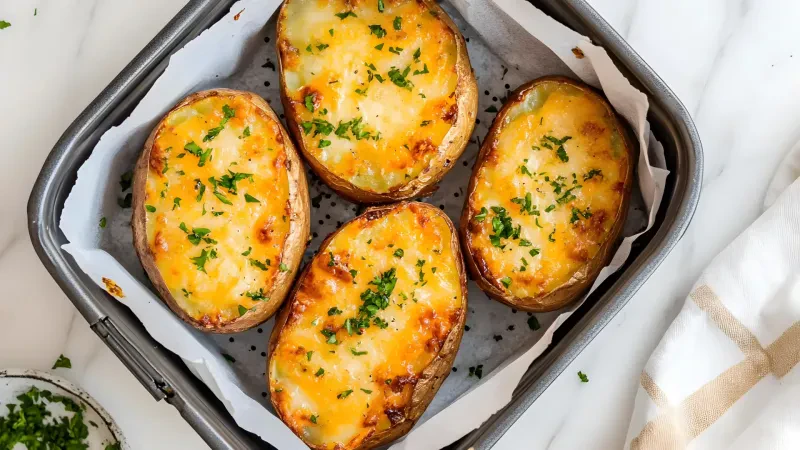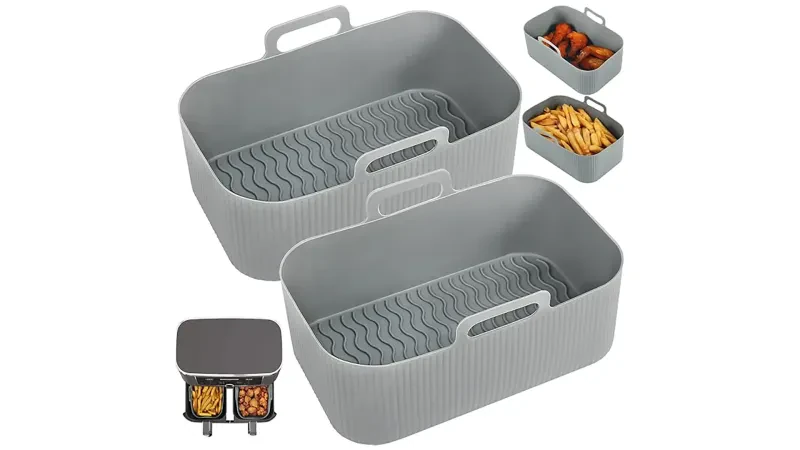Hanukkah, also known as the Festival of Lights, is one of the most important Jewish holidays. Occurring in December, it celebrates the victory of the Maccabees over the Syrians in 165 B.C.E. and the rededication of the Second Temple in Jerusalem.
The holiday lasts 8 days and is a time for celebration, bringing light into the dark winter. Families gather to light the menorah, eat traditional fried foods, and exchange gifts. If you're new to celebrating Hanukkah, read on for answers to the top 10 most frequently asked questions.
How Do You Spell Hanukkah?
Hanukkah is Hebrew for "dedication". In English, it is also spelt as Chanukah. The most common spelling is Hanukkah.
Is Hanukkah a Religious or Cultural Holiday?
Hanukkah is both a religious and cultural celebration. Religiously, it commemorates the miracle in which oil expected to burn for only one day lasted for eight. Culturally, it celebrates the victory of the Maccabees over their oppressors. For many Jewish families, it is a time to gather and celebrate their identity and traditions.
What Are the Main Traditions of Hanukkah?
- - Lighting the menorah: The nine-branched candelabrum is lit each night using the shamash (helper) candle. One more candle is added each night.
- - Reciting blessings: Special blessings are recited on lighting the menorah.
- - Playing dreidel: A four-sided spinning top used in a gambling game. Players win chocolate coins called gelt.
- - Giving gifts: Traditionally gelt or coins, but now also include toys and other presents.
- - Eating fried foods: To commemorate the oil miracle, foods fried in oil, like doughnuts and latkes, are eaten.
What Is Traditional Hanukkah Food?
- - Latkes: Potato pancakes fried in oil and served with applesauce or sour cream.
- - Sufganiyot: Round jelly doughnuts dusted with powdered sugar.
- - Brisket: Braised beef brisket, signifying a time of abundance.
- - Chocolate gelt: Chocolate coins wrapped in foil.
- - Sour cream: Often eaten as a topping for latkes.
- - Applesauce: Served as an accompaniment to latkes.
- - Olive oil: Used for preparing fried foods and lighting the menorah.
What Are You Allowed To Eat on Hanukkah?
There are no dietary restrictions on Hanukkah. Traditional dishes are fried in oil since they celebrate the miracle of oil. All Jewish dietary laws must be followed. This means no pork or shellfish. Meat and dairy may be eaten, but not together. Traditional Hanukkah foods like latkes, sufganiyot, and brisket are all encouraged.
What Do You Bring to a Hanukkah Dinner?
If invited to a Hanukkah dinner, you can bring:
- - Homemade latkes or sufganiyot
- - A bottle of extra virgin olive oil
- - A dessert like rugelach (crescents) or macaroons
- - A side dish that complements the menu
- - Gelt or small gifts
- - Wine or candles for the host
Most importantly, bring good cheer and an appetite!
What Meat Is Eaten on Hanukkah?
Brisket is the most popular meat served, but chicken, turkey, and lamb are also standard. Beef or chicken sausage may be served as an appetizer. Meat must be kosher, so no pork or ham. Dishes are often braised or slow-cooked in advance.
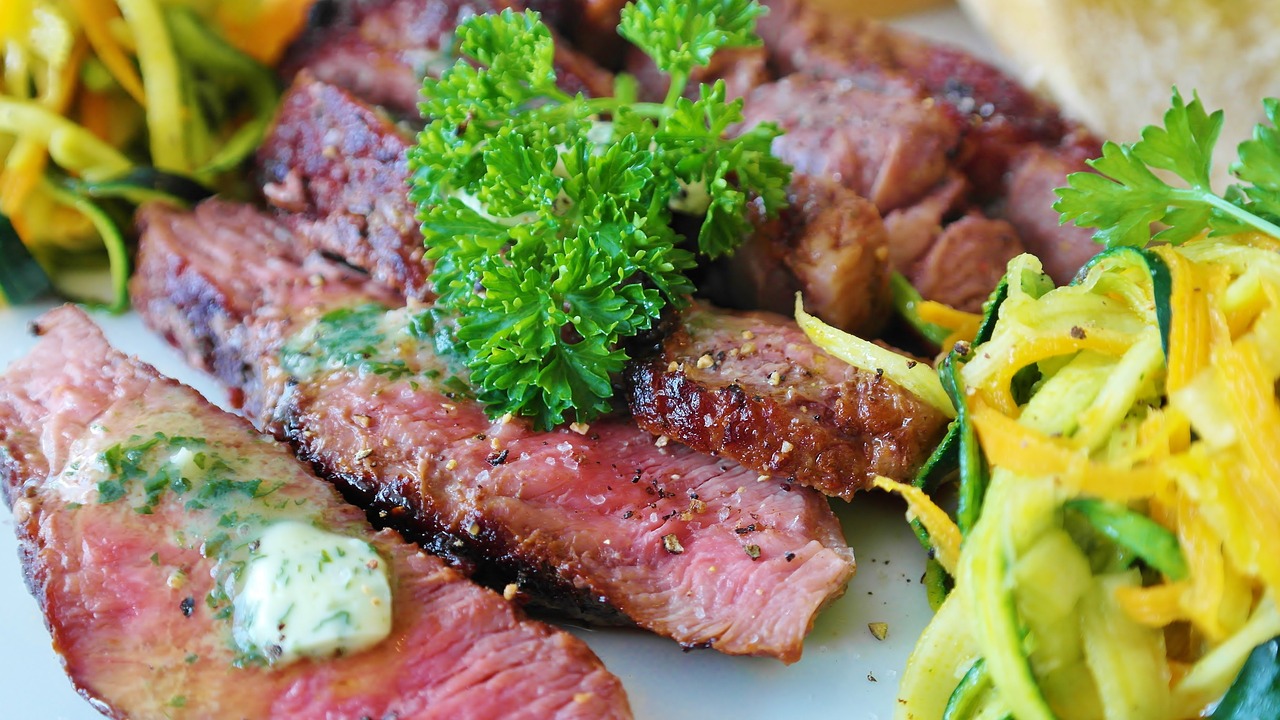
What Is a Traditional Hanukkah Dinner?
A traditional Hanukkah dinner usually consists of:
- - Appetizers like latkes, sufganiyot, chopped liver or matzah ball soup
- - Brisket or roasted chicken as the main course
- - Side dishes like roasted potatoes, noodles kugel, roasted vegetables
- - A green salad
- - Desserts like rugelach, macaroons, or fruit compote
- - Wine, often Manischewitz Concord grape
The menorah is lit before or after dinner, accompanied by prayers and songs. Family and friends gather to reminisce, play dreidel, and exchange gifts.
What Is Hanukkah's Traditional Fried Food?
The two most traditional fried foods are sufganiyot (doughnuts) and latkes (potato pancakes). Sufganiyot are round jelly doughnuts injected with jelly or custard and fried. Latkes are made from shredded potatoes, onion, egg, and flour, then fried in oil till browned and crispy. Eating these oily foods commemorates the miracle when a day's worth of oil lasted eight days.
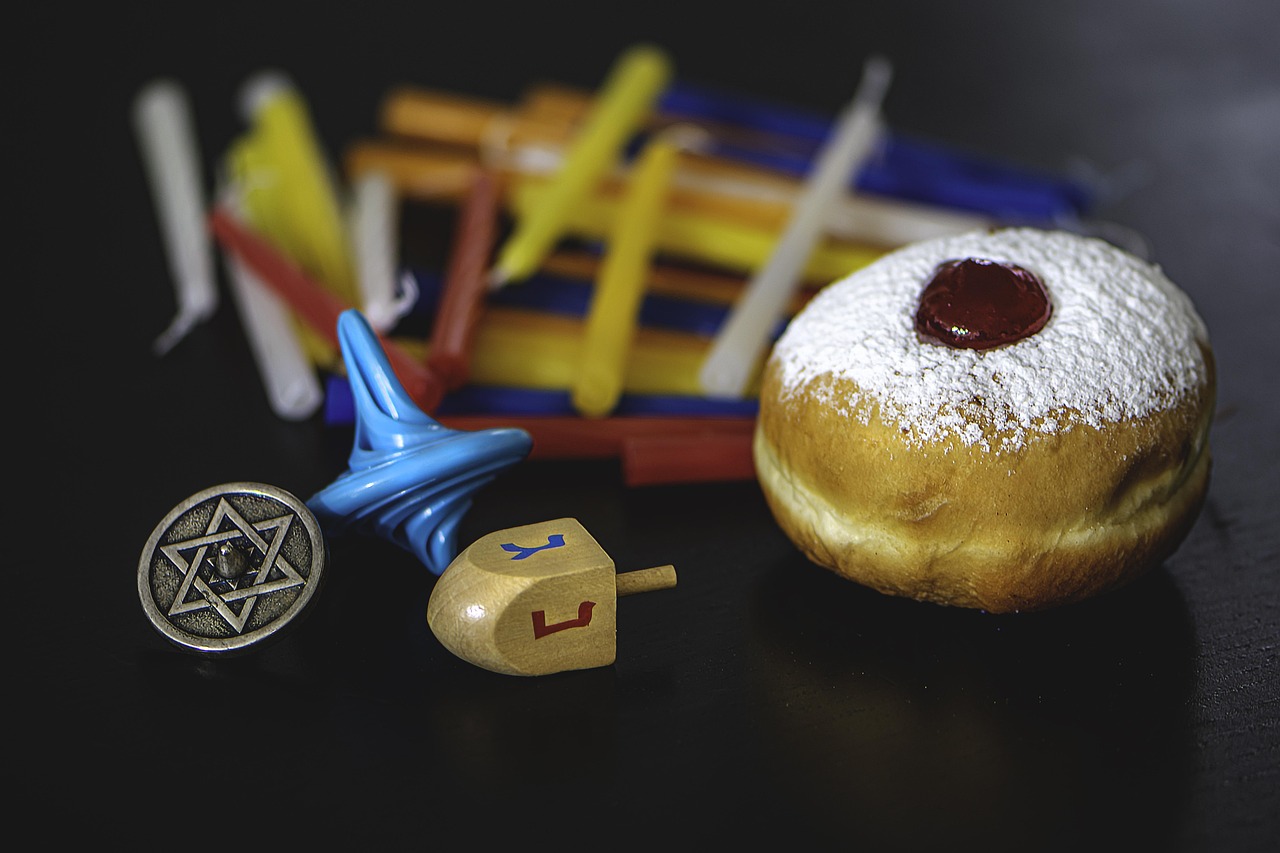
Why Does Hanukkah Last Eight Days?
When the Maccabees reclaimed the Second Temple in Jerusalem in 165 BCE, they only had enough oil to light the menorah for one day. Miraculously, the oil lasted eight days, enough time to get more. To commemorate this miracle, Hanukkah is celebrated for eight days.
The lighting of the menorah is central to celebrating Hanukkah. The nine-branched candelabrum is lit using the shamash or helper candle on each holiday night. On the first night, the shamash plus one candle is lit. On subsequent nights, one additional candle is added to the previous total. Special blessings are recited during the candle-lighting. The candles must burn for at least 30 minutes after sunset. Often, the menorah is placed near a window so the lights are visible to the outside world.
Lighting the Hanukkah candles and watching their glow grow over eight nights is a beautiful symbol of the triumph of light over darkness. The candles also remind us of the miracle when a day's supply of oil inexplicably burned for eight days in the rededicated Temple.
Top 7 Traditional Hanukkah Foods
Hanukkah celebrates miracles and light triumphing over darkness. An essential part of the celebration is eating traditional fried foods cooked in oil. Here are the top 7 traditional Hanukkah foods:
- 1. Latkes - Potato pancakes made from grated potatoes, onion, eggs, and matzo meal or flour, fried till crispy brown, and often served with applesauce or sour cream.
- 2. Sufganiyot - Round jelly doughnuts are fried, injected with jelly or custard filling, and dusted with powdered sugar.
- 3. Brisket - Braised beef brisket flavoured with onions, carrots, and spices. It was cooked for hours till tender.
- 4. Chocolate gelt - Chocolate coins wrapped in foil to look like money. Part of Hanukkah traditions.
- 5. Olive oil - Used for frying and baking and to light the menorah.
- 6. Applesauce - Often accompanies latkes for a sweet and salty combo.
- 7. Sour cream - Toppings for latkes or potato pancakes. Provides an excellent, creamy contrast.
Hanukkah Meaning and Significance
Hanukkah celebrates the victory of light over darkness and the triumph of Jewish culture. The name means "dedication" in Hebrew, referring to the rededication of the Temple.
When the Syrian-Greeks desecrated the Temple in 167 BCE, a small Jewish army called the Maccabees revolted. Led by Judah Maccabee, they defeated the mighty Syrian army and drove them out of Jerusalem.
Judah ordered the Temple to be cleansed and purified so worship services could resume. They rededicated the Temple altar but only found one day's supply of ritually pure olive oil for the menorah. Miraculously, the menorah stayed lit for eight days until more oil arrived.
Hanukkah commemorates God's intervention and the survival of Judaism. Traditions like lighting the menorah and eating fried foods celebrate this history and the miracle of light.
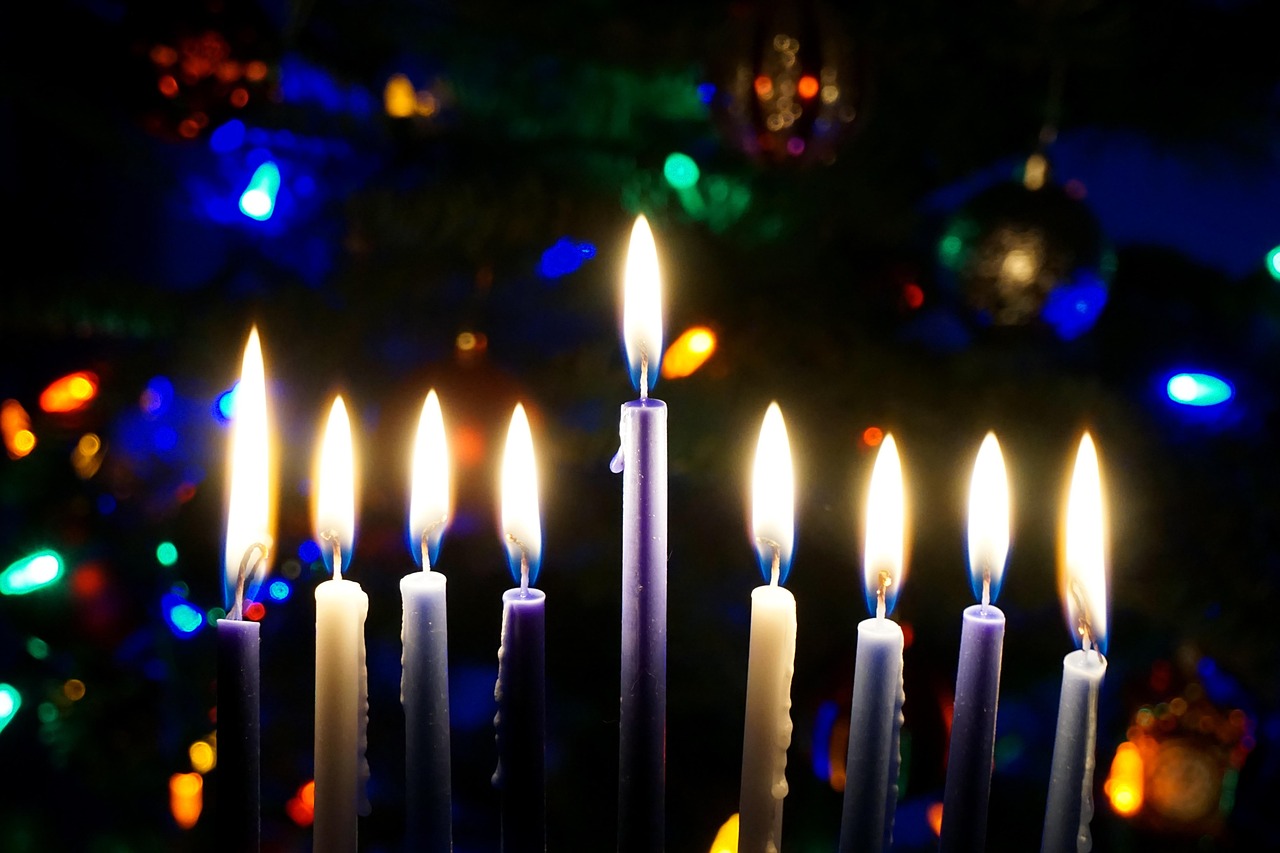
Hanukkah Gift Traditions
Gift-giving is a beloved Hanukkah tradition, especially for children. In the past, children were given gelt - chocolate coins covered in gold or silver foil. As time passed, small gifts such as dreidels or menorahs were exchanged. Nowadays, more significant gifts like toys, books, and clothes are commonly given each night of Hanukkah, similar to Christmas traditions. Families may also give practical household gifts, charity donations, or 'experiential gifts' like show tickets. Regardless of the Hanukkah gift type, exchanging presents brings celebration and joy during the Festival of Lights.
When it comes to giving gifts during Hanukkah, there is no particular ceremony to follow. However, giving small yet thoughtful gifts often revolves around food is customary. These gifts may include dreidels, board games, and special meats and are meant to unite people and promote unity among Jewish communities.
How Hanukkah Will Be Celebrated in 2024
In 2024, Chanukah for Hebrew Year 5785 begins at sundown on Wednesday, 25 December 2024 and ends at nightfall on Thursday, 2 January 2025.
Hanukkah overlaps with the Christmas season in 2024, so expect festive decorations and holiday spirit! Because Hanukkah lasts 8 days, families will have more time to participate in traditions and gatherings with loved ones.
As in every year, families will light the menorah, fry latkes and other treats, play dreidel, exchange gifts, sing songs, and celebrate Jewish culture and identity. Synagogues may host public events with food, music, and activities. People wish each other "Hanukkah Sameach!" or "Happy Hanukkah!" during this time.
Hanukkah 2024 will likely see more hybrid celebrations, with virtual events and activities in addition to in-person festivities. The Jewish Festival of Lights is a unifying force, bringing hope and light during the dark winter.
Hanukkah is a meaningful holiday commemorating the survival and identity of Jewish culture.
